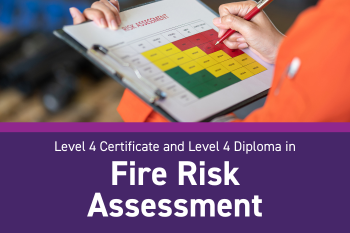Senior officers in fire, ambulance, prison and related services are among the group of UK occupations in highest demand according to the government’s new occupations in demand index.
Recruitment and retention issues have pervaded the emergency and protective services for some time now, and one cannot help but thinking that senior roles are becoming much harder to fill due to average length of service being in decline.
In recent years, the average length of service for ambulance and fire and rescue staff has dwindled to around the 8 or 9-year mark, whereas more than a decade ago a career spanning 30 – or even 40 years – would not be out of the norm.
As demand pressures grow evermore complex and what with the general trend toward portfolio careers, it would appear that less and less of us are staying in the same profession long enough to progress into the more senior roles.
I say “us” because this is not just true of ambulance and fire and rescue services, but across the economy as a whole, and the net result is that the leadership pipeline for individuals with specialist skills and experiences in particular is becoming depleted.
A new arm’s length body, Skills England, is charged with tackling this and other such issues. In its inaugural report, the offshoot of the Department for Education outlined measures designed to give employers greater power and flexibility to address their skills challenges.
Perhaps the most eye-catching of these policy pronouncements is a planned overhaul of the Apprenticeship Levy, which is set to be replaced by an expanded Growth and Skills Levy.
There is much to commend about the Skills England agenda, particularly in light of the revelation that nearly 1 million young people in Britain are currently not in education, employment or training. However, one of the proposals – a tightening of the rules surrounding Level 7 apprenticeships (equivalent to a master’s degree) – could prove restrictive for developing senior leadership via the vocational route.
The apprenticeships system is generally working well for our emergency services, and whilst greater financial support to expand apprenticeship training wouldn’t go amiss, targeted assistance to enable employees to develop their skills in-role and take the next step in their careers is, as the occupations in demand index suggests, increasingly vital.
That being so, the sector will no doubt welcome the opportunity to spend a proportion (still to be determined) of their Growth and Skills Levy on other forms of training such as short courses. We can expect the training in scope to come with certain caveats, but hopefully nothing too restrictive or onerous as far as employers are concerned.
It is equally encouraging to see government signal its intention to revamp Level 4 and 5 qualifications, or the ‘missing middle’ as it’s known. For any number of reasons, Level 4 and 5 technical and vocational qualifications are a vastly underutilised resource when it comes to unlocking skills growth and leadership development.
In the context of career pathways in the emergency services, these types of qualifications offer fertile ground for recruiting and developing talent for a range of senior specialist, technical and mid-level managerial roles. If developed and communicated in the right way, it’s not hard to envisage the emergence of a stronger, more compelling narrative around job roles aligned to these qualifications, in turn giving individual’s greater reason to want to commit to a career in the emergency services long term.
More flexibility and support across a career to progress from an entry level to senior officer role – via these qualifications – would not only help to build a sustainable pipeline of talent, it would also potentially help to support emergency services to respond effectively to new and emerging service demands through specialisation.
Many of the grand challenges that face us, such as digital transformation and resilience to terror threats or climate change for example, require specialist and technical skills in mid-level and senior leadership roles. To this end, an expansion of well designed, vocational qualifications (Level 3-5) and specialist training would provide a platform for enabling our emergency services to build enhanced capability and capacity in these areas.
So, having said all that, how will the renewed skills agenda be perceived by the sector?
Clearly, it’s early days and the body will not be able to solve all our skills challenges overnight, but we can be quietly optimistic, with the inaugural report at least, that the skills agenda is broadly on the right path to better supporting emergency services’ workforces.
A firm recommitment to supporting the growth of apprenticeships is to be welcomed, as this is an area which is working well for our emergency services overall. The flexibility of the Growth and Skills Levy also has the potential to accelerate upskilling of the workforce and build the sustainable pipeline of leadership talent that the sector requires.
Emergency services employers need to continue to be consulted as much as possible, particularly when it comes levy design, to ensure that their needs are fully accommodated and met. Reemphasis on Level 4 and 5 qualifications – long overlooked – may be a useful avenue for building new capabilities in response to new and emerging service demands, but again listening to employers and understanding the barriers they have faced with these in the past is key to unlocking the required skills growth and leadership development.
In prospect, Skills England provides a supportive framework for emergency services employers to anticipate and tackle their workforce challenges head on. As ever though, the devil will be in the detail.
The content of this blog article originally appeared in an article published by Emergency Services Times.





